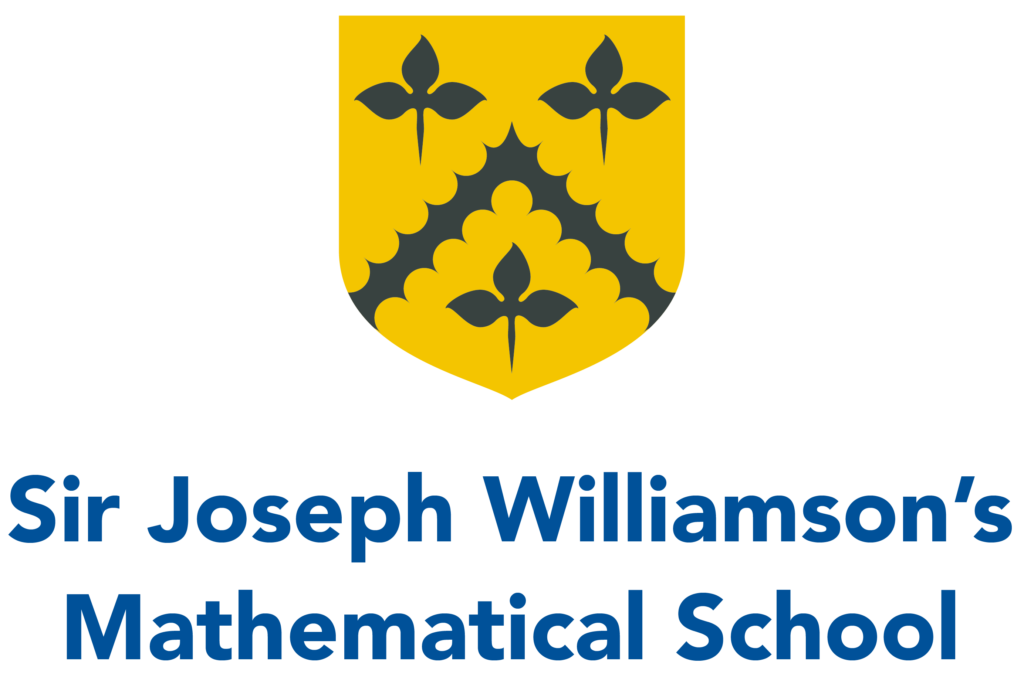The main aim of the computing department is to “…equip(s) pupils to use computational thinking and creativity to understand and change the world” (NC, 2013).
The Computing Department at Sir Joseph Williamson’s Mathematical School aims to do this by teaching the underlying skills and knowledge required for pupils to be able to autonomously solve an array of different problems through a series of project based units in a variety of languages and applications. We aim to enable students to independently analyse problems, design, develop and implement solutions, and test and evaluate their successes. In order to do this, students will need to have good analytical skills founded on experience of a number of programming constructs. The foundation of this is an understanding of the “fundamental principles and concepts of computer science, including abstraction, logic, algorithms and data representation” (NC, 2013). In addition, we develop pupils’ theoretical understanding of how systems work, ensure they are digitally literate and are made fully aware of the potential dangers in use of the Internet and the responsibilities they have as a future e-citizen.
The KS3 programme aims to give pupils a wide flavour of computing. Pupils enter the school in Year 7 with a varied experience of computing. Skills are developed initially through the use of more visual based applications which enables even those pupils who have had quite a limited computing experience at their previous schools, to still fully access the concepts being explored. The underlying understanding of programming constructs is reinforced in these early stages so pupils can move on to more complex applications with a sound theoretical foundation. Pupils are encouraged to share their ideas about their system development throughout Key Stage Three. Pupils are encouraged to discuss their work, and support each other when appropriate. The department has a strong emphasis on pupils documenting their iterative development throughout each project. This reflects the importance placed by most computing based workplace environments on team approaches to programming challenges. The curriculum supports this by supplying template documents to scaffold the written parts of the units. Every lesson and its resources is placed on Google Classroom to support out of hours learning and to assist pupils when they embark on revision for unit tests. Support is often provided by teachers through this platform when pupils struggle with classwork and homework.
Choice of content:
- A series of varied units aim to build understanding of the core principles and concepts that underpin computing. Developing skills and confidence over time to ensure pupils become responsible, creative and autonomous participants in a digital world.
- Development of an understanding of the technology used around them so that they can make informed choices about how to use and express themselves both in school and the workplace beyond.
- An awareness of the underlying mathematics and science that shapes our digital age and an appreciation of how technology may develop further into the future.
Pupils can opt to study Computing at GCSE level and at A level. Pupils who do not opt to take GCSE Computing at Key Stage 4 undertake the Inspiring Digital Enterprise Award – developing their understanding and awareness of Online Safety, learning how to design and create digital artefacts, developing problem-solving skills, developing code-based solutions and analysing and manipulating data sets. This gives pupils the opportunity to obtain an industry- recognised qualification which can be used to help demonstrate their digital and enterprise skills to potential employers.
In order to meet the obligations of the National Curriculum in Computing, every Year 10 & 11 student must complete at least 9 compulsory iDEA ‘badges’ in the following order:
- Citizen Category – Online Safety
- Citizen Category – Safe Online
- Citizen Category – Digital Ethics
- Worker Category – Digital Research
- Worker Category – Digital Portfolios
- Maker Category – Animation
- Maker Category – Coding Solutions
- Entrepreneur Category – Problem solving
- Entrepreneur Category – Big data
Beyond these compulsory badges, we encourage students to complete others, working towards Bronze or Silver Awards.
Whilst the content of the Key Stage 4 and 5 examination board specification dictates the content delivered, the approach taken by the department is to deliver this content through practical programming and real life contextual work wherever possible. Some overarching concepts are taught holistically and are frequently re-visited and developed to develop stronger topic knowledge. Advances in technology and computing are transforming our world, especially in the workplace, and equipping pupils with the fundamental skills, confidence and informed responsibility required to adapt their working practices to future technology as creatively and productively as possible is the key aim in the Computing department’s teaching.
At Key Stage 4 and 5, students are encouraged to develop their own programming and problem-solving skills beyond the scope of the curriculum. Many students teach themselves both software and hardware based skills outside of classroom time, and where possible, this is reinvested back into the student body via tutorials, facilitated by the department, that take place with small groups informally outside of curriculum classroom time (although this has been limited more recently by restrictions due to the COVID pandemic). In addition, members of the Computing department are often found giving advice and sharing expertise on self-initiated student computing projects taking place outside school.




